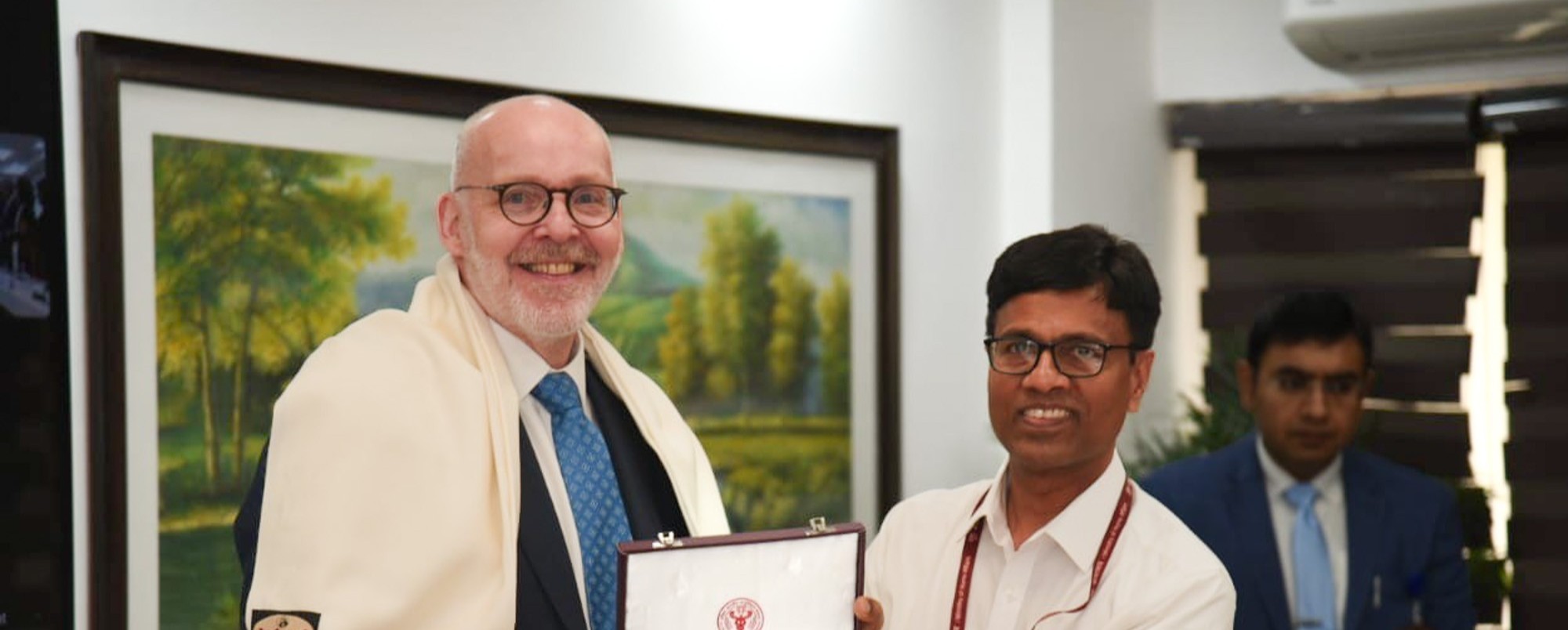Director of Research and Innovation at LUHFT, Professor Terry Jones, returned from a visit to India this week where he co-signed a letter of intent, committing to a major multinational initiative for head and neck cancer research.
The initiative between the All India Institute of Medical Sciences (AIIMS) and the University of Liverpool - more specifically Liverpool Head and Neck Centre (LHNC) - will continue to build on current collaborative work and incorporate a shared research focus.
Currently, amongst other initiatives, the Liverpool Head and Neck Centre is home to the largest head and neck cancer study in the world – The PATHOS study, of which Professor Jones is the co-Chief investigator on this study.
PATHOS, which has recruited 1200 patients from the UK, France, Germany, Australia and the USA, will determine whether reducing radiotherapy doses and omitting chemotherapy after patient have had transoral surgery for Human papillomavirus related cancer of the tonsil or base of tongue is safe and improves the long-term effects of this type of cancer and treatment.
Collaborations such as these between LHNC and AIIMS, will strengthen Liverpool`s position at the centre of developing world-leading, cutting-edge head and neck cancer research bringing highly innovative, new treatments to the city’s residents.
Professor Jones said: “Head and neck cancer is the seventh biggest cancer globally and with the rate of this cancer in Liverpool comparable to some of the most deprived areas of the world, the collaboration with AIIMS is something we are very excited to be part of.
“This will allow us to take our existing collaboration with AIIMS to a new level, cementing the relationship between the two most distinguished institutions in the research, translation and treatment of head and neck cancer in the UK and India, to create the AIIMS/Liverpool Centre for Translational Research in Head-Neck Cancer, for the benefit of head and neck cancer patients locally, nationally and world-wide”
If you have any concerns about head and neck cancer, please contact your GP as soon as possible. For more information, follow the link to the NHS website which explains these symptoms and when to get checked in more detail: https://
To find out more about the studies running a the LHNC, visit https://
